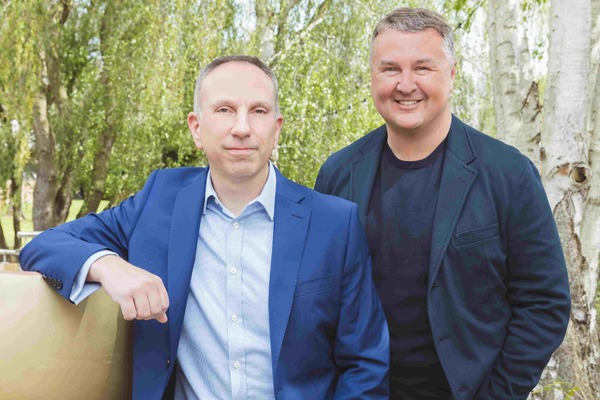8 top travel trends agents need to know for 2025
Which destinations are in vogue, how far in advance are consumers prepared to book, and will AI take our jobs: just a few of the discussion points at Abta’s annual Travel Trends conference in London yesterday
Bring on the peaks
The outlook for next year was broadly positive: speakers rotated throughout the day but all gave us the sense that the industry is in a good place, and people will continue to cut back in other areas before they sacrifice their holiday. Antoine Vialle, market intelligence consultant, Forward Keys, presented data showing outbound UK travel was looking healthy, with growth driven by secondary cities such as Liverpool and Belfast. Operators echoed this sentiment, with Kelly Jackson, managing director, TTC Tour Brands, saying next year was shaping up to be extremely positive. However, Adido’s Andy Headington added this warning: “The number of people who are coming off fixed rate deals in the next two years is huge, and that could be a very big problem when higher rates hit them in the pocket.”
Long-haul dreams
Abta’s director of communications Graeme Buck said the organisation’s consumer research showed a significant upswing in long-haul travel and an increase in people’s desire to choose somewhere new. Ant Stone, director of marketing, G Adventures agreeing that long-haul was coming back strong. Kuoni’s director of communications, Rachel O’Reilly highlighted trends including the Maldives plus another destination, such as Thailand or Sri Lanka; boutique Caribbean; complex New Zealand (rail / motorhome / escorted tour in one) and the increase of wildlife-rich experiences for families in Africa and Thailand.
Is Black Friday the new peaks?
O’Reilly said Kuoni had released Black Friday offers for the first time this year, after hitherto resisting. “And it worked!” she said. TTC also reported exceeding last year’s Black Friday revenues, while Stone said G Adventures’ Black Friday investment was on a par with January for the trade now. “I think the trade realizes the opportunities now,” he said. Hurtigruten’s president of sales and marketing, Iain Powell, added that Black Friday was important and an opportunity to clear late stock. However, all agreed it was critical to use Black Friday to demonstrate value, so as not to disadvantage those who had booked early.
Solo travel is not a trend
G Adventures, Newmarket Holidays and Intrepid can all point to bookings increases. Intrepid’s general manager, Hazel McGuire made the point that although solo travel is often tagged as a trend, it’s become so much more than that. It’s a fundamental shift in the way women are living their lives because of socio-demographic changes such as declining birth and marriage rates, the tendency towards later marriages, and the higher proportion of women in senior roles in the workforce. “Women have more independence and less ties to home. This is a much longer trend than a year-in-year shift,” McGuire said, adding: “There’s also a misconception that solo means single, widowed, or divorced and it’s a sorry story but actually it’s a fantastic one – it’s about people seizing opportunities!”
Authentic voices and simple messages
Tui’s accessibility manager Marina Snellenberg explained how the marketing team used disabled influencers to connect with disabled audiences while Hurtigruten’s Powell said the cruise line planned to invite more travel writers, agents and influencers on its ships. He said: “There’s a richness to Norway and as a company, it’s exciting to be marketing that, but we’ve had to work on our brand story. Why are we different to any other brand going to Norway? We need to distil why you come to Norway with Hurtigruten into four key facts and reiterate that over and over again.”

Planning ahead: savvy or silly?
Booking three years in advance? Sounds crazy, right? And not something travel journalist Simon Calder was willing to advise people to do, but Newmarket Holidays put 2027 on sale six weeks ago, and Kate Liberty, head of marketing and brand, said in the last few weeks, a fifth of the operator’s total bookings were for 2027. “We’re definitely seeing an early booking trend,” she said. Newmarket was not the only one – Carnival Cruise Line’s Luke Smith said most cruise lines had gone on sale with 2027, which meant they had a full 12 months of additional stock on sale than was usual in the past. “We have one of the least aggressive lates markets that we’ve seen in a long time, and that’s due to better forward bookings,” he said. The consensus was that customers favoured early booking to guarantee pricing and spread the payment, amid the financial uncertainty.
Baecations are a thing, apparently
It wouldn’t be a trends conference without inventing a trend, and Abta itself coined the word ‘Baecations’ to explain a rising trend of more couples choosing to go away. In this context, your ‘Bae’ means your ‘before anyone else’ but later in the day, Mark Lawther, owner of Experience Albania, adapted it for a trend that benefits rising star Albania – when you want to go somewhere ‘before anyone else’.
The march of AI
And it also wouldn’t be a travel conference without mentioning AI. Although Club Med has begun using AI to take bookings via WhatsApp (humans are also available), the general feeling was that travel should be using AI for boring, tedious tasks that improve efficiency. So you can relax, AI is not coming for your job, yet. As Andy Headington said: “I tested an artificial travel agent – Layla – with a short break in Salisbury and it was pretty crap. I think our jobs are safe.”














